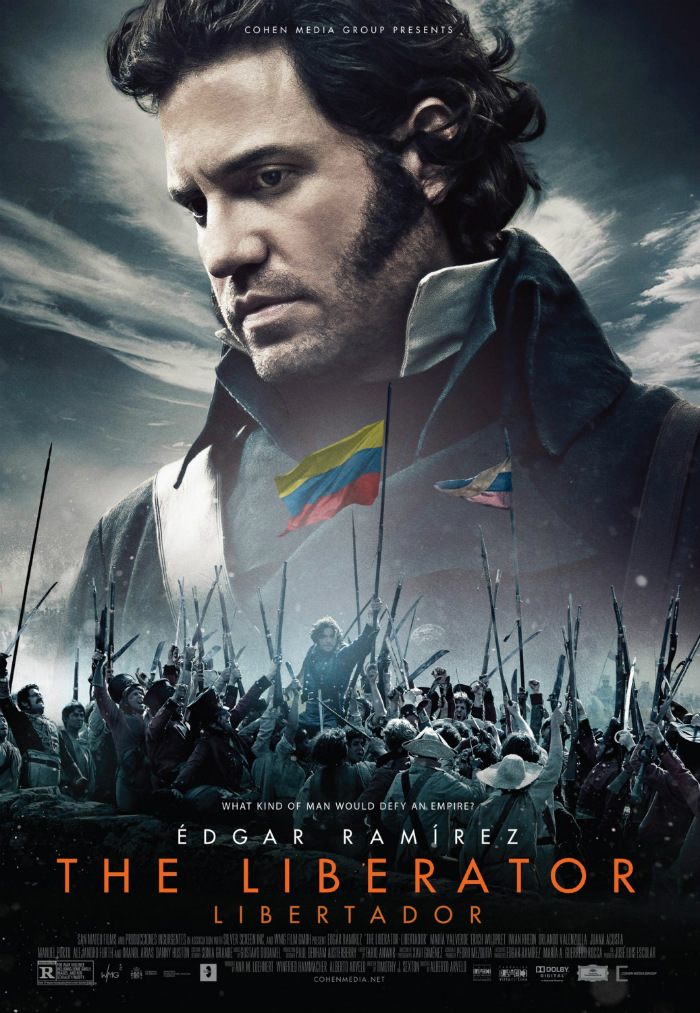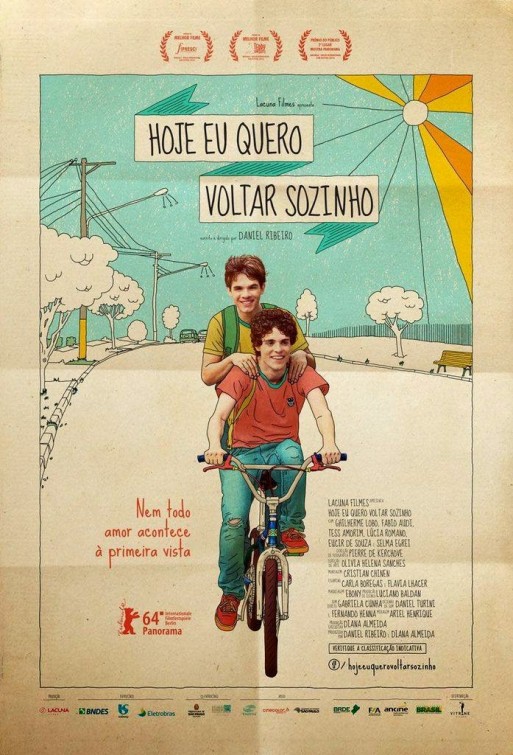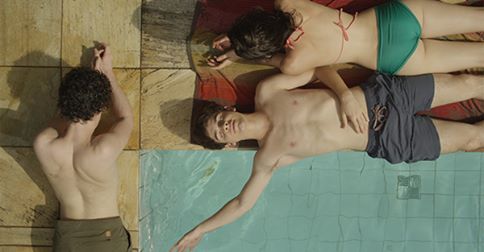 Glenn here to take a look at two of this year’s official foreign language film selections from South America. They couldn’t be more different if they tried: from Venezuela we have The Liberator, a historic epic, while Brazil has submitted the rather small-scale gay teenage romance The Way He Looks. The latter is a particularly interesting selection for Brazil, a country that hasn’t been nominated since the one-two punch of 1998-1999, yet it follows in the path of last year’s even more adventurous selection Neighbouring Sounds, which hadn’t a hope in hell, but kudos for that country’s committee choosing quality over what’s perhaps perceived as an easier sell to Oscar voters.
Glenn here to take a look at two of this year’s official foreign language film selections from South America. They couldn’t be more different if they tried: from Venezuela we have The Liberator, a historic epic, while Brazil has submitted the rather small-scale gay teenage romance The Way He Looks. The latter is a particularly interesting selection for Brazil, a country that hasn’t been nominated since the one-two punch of 1998-1999, yet it follows in the path of last year’s even more adventurous selection Neighbouring Sounds, which hadn’t a hope in hell, but kudos for that country’s committee choosing quality over what’s perhaps perceived as an easier sell to Oscar voters.
Venezuela would have been wise to do the same. While the exquisite Bad Hair probably wouldn’t have made the Oscar cut even if it had been selected, passing it up in favor of the transparent and flat filmmaking of Alberto Arvelo’s The Liberator disappoints. The cynic in me from my early days of Oscar-watching would have thought this film a shoe-in given its grand war sequences, low-heat romance and exotic vistas, but doesn’t it feel like we’ve somewhat moved away from this sort of film with Oscar voters showing unique bravery in recent years of this category. Maybe the Venezuelan selection committee thought the sight of handsome Édgar Ramirez floating above a swath of flag-waving revolutionaries on the poster would pique AMPAS interest.
VENEZUELA'S THE LIBERATOR
Arvelo’s film is the story of Simon Bolivar, a man whom the opening credits tell us fought in over 100 battles and traversed 70,000 miles, twice the terrain of Alexander the Great. “His army never conquered – it liberated.” An early scene of Bolivar returning to his home in Venezuela with his new wife even shows that the slaves on his plantation all think of him as a wonderful, noble man and he joins them in a late night dance by a bonfire. He’s basically a perfect human being. A man of the people. That doesn’t exactly make for the most interesting character. Nor does it make for a believable one.
More The Liberator and Brazil's gay romance The Way He Looks after the jump...
The Liberator follows a fairly straight-forward path. Born into apparent wealth beyond comprehension, he meets a woman on travels to Spain. They’re a perfect fit for a cinematic romance because he’s cheekily defiant in the face of royal authority while she bows her head in coy femininity and together they speak in bland romantic platitudes that make them sounds as if they spent their formative years reading tawdry romance novels in the hopes that one day they too could compare their lover to the sun and the stars or whatever. It’s not too long before he takes charge of an army to liberate Venezuela from Spain. Danny Huston is in there too, and everybody recites their dialogue as if reading from classroom text books, knowing that everything they say is of grand Historical Importance.
Not at all interested in realistically portraying the horrors of war or going off on directorial flights of fancy, The Liberator is a big misfire. The director is seemingly far too reverential towards its lead, afraid to do anything risky, and it severely dampens the drama. With a musical score that swells in all the right places and beautiful photography of the South American landscape, it all comes off as too neatly precise. Nary a hair is out of place in the search for perfection, but the film comes up well short and lacks the magic to make the material pop. Only one sequence, a treacherous trek across the Andes, approaches any sort of transcendent scale.
 In comparison, it’s nice to think back to The Way He Looks, which I saw at NewFest a couple of months ago and which I enjoyed greatly and remember far better than The Liberator, which I only saw two weeks ago. This film, a boutique assemblage of teenage coming-out drama and subtle romance, was adapted from a lovely short named I Don't Want to Go Home Alone with the same actors (which can be viewed on Vimeo and I recommend it) and director Daniel Ribeiro was wise to keep the scope of his story streamlined and to focus more on character. The film follows Leonardo, a blind high-schooler, and his best friend Giovana whose comfortable lives are upturned by the arrival of Gabriel. The film won both the FIPRESCI Prize and the Teddy in Berlin.
In comparison, it’s nice to think back to The Way He Looks, which I saw at NewFest a couple of months ago and which I enjoyed greatly and remember far better than The Liberator, which I only saw two weeks ago. This film, a boutique assemblage of teenage coming-out drama and subtle romance, was adapted from a lovely short named I Don't Want to Go Home Alone with the same actors (which can be viewed on Vimeo and I recommend it) and director Daniel Ribeiro was wise to keep the scope of his story streamlined and to focus more on character. The film follows Leonardo, a blind high-schooler, and his best friend Giovana whose comfortable lives are upturned by the arrival of Gabriel. The film won both the FIPRESCI Prize and the Teddy in Berlin.
While, yes, the gay romance at the center is what ultimately makes the film the special little gem that it is, I also enjoyed the way it tied in Leonardo’s sexuality with his desire of independence from an over-protective mother and home-life. Being a closeted gay teenage isn’t always about angst over sexuality – in fact, especially these days, it’s a natural thing that isn’t much of a struggle at all. Sometimes the biggest problems with being a teenager involve simply not wanting to feel as if our lives are being dictated and that we have some semblance of a say into what we do.
Gorgeously lensed to maximize Brazil’s sunlight and with keen affection for its characters without making them saints, The Way He Looks is a charming and affecting film. I doubt Brazil will have any more luck getting a nomination for it, but I appreciate the gamble. Alongside Canada’s Mommy and Portugal’s What Now? Remind Me, representation of gay characters and filmmakers is surprisingly strong this year and if the country’s selection of this sweet film means more people are aware of it and see it then that’s a nice reward, too.


The foreign language film Oscar submission charts - fully updated. Explore and share with friends!
Pt. 1 Afghanistan through Ethiopia - 15 official submissions thus far
Pt. 2 Finland through Panama - 23 official submissions thus far including the first ever submission from Panama called Invasión
Pt. 3 Peru through Vietnam -15 submissions thus far
